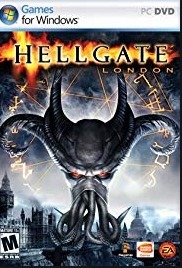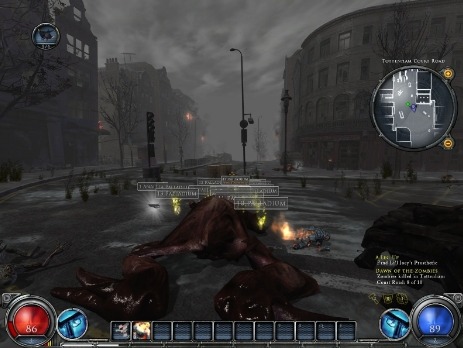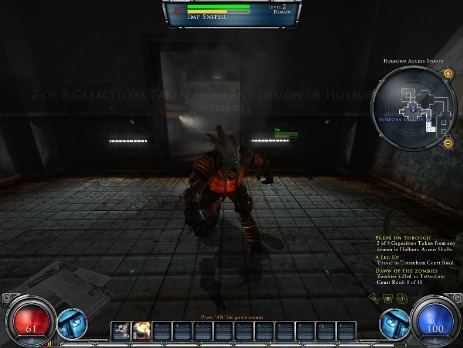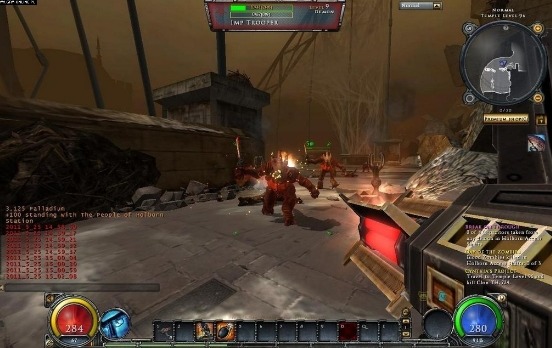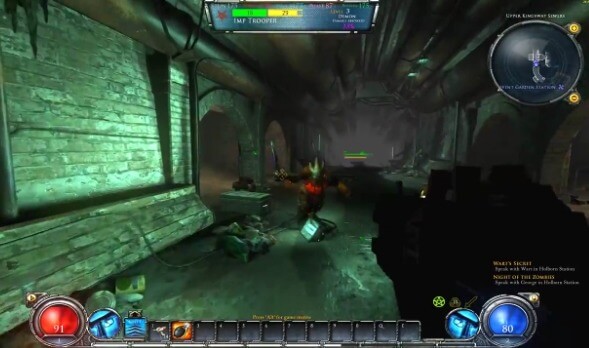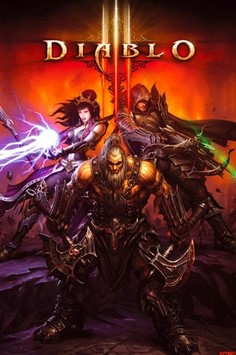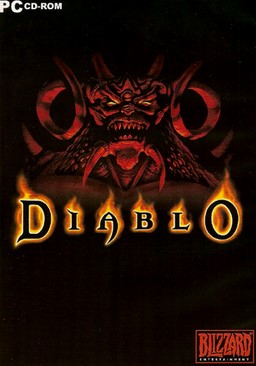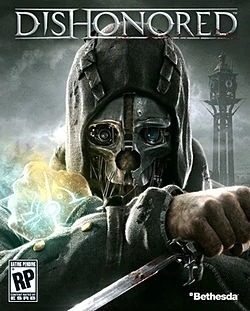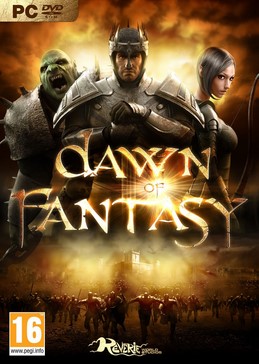Hellgate: London is a dark fantasy themed action role-playing game originally developed by Flagship Studios, released on October 31, 2007. It was developed by a team led by former Blizzard Entertainment employees, some of whom had overseen the creation of the Diablo series.
Set in a post-apocalyptic London in the year 2038, Hellgate: London is a fast-paced action role-playing hack and slash game. It includes random elements from roguelikes such as weapon and armour attributes, item drops, mob spawns and level composition. The game featured both single-player and online multiplayer support when it was released although North American and European (US/EU) online support has since shutdown. The single-player version features a five act story quest line when completed, the player is eligible to restart the story line again in a new high difficulty and create new characters in an elite mode.
In 2008, Flagship Studios filed bankruptcy and all intellectual property was seized as collateral for funding received from Comerica Bank. Subsequently, development of the game halted. Namco Bandai Games provided free ongoing US/EU server support in the fall of Flagship Studios until January 31, 2009, when the US/EU multiplayer game servers and websites were taken offline. HanbitSoft has since acquired properties to the game and has redeveloped it as a free-to-play Hellgate London: Resurrection in South Korea, featuring Seoul based maps. In 2014, Hellgate Global was announced to add Tokyo to the game for a possible release outside South Korea.
Gameplay
Hellgate: London is an action role-playing game that builds upon the core design of roguelikes by using random generation of maps, monsters, and loot to allow for replayability. The game can be played in either third person perspective or first person perspective.
Hellgate: London can be played offline or online without a fee. Players can pay a monthly fee to gain additional content over time, including new areas, weapons, monsters, classes, quests, events, titles, game modes and other content. The game consists of six acts to unify the areas a player travels through on a greater scale. All acts account for approximately 25–40 hours of single-player gameplay.
Hellgate: London was initially designed to be primarily focused on solo and cooperative PvE combat, but players can duel and there is a free-for-all PvP mode for subscribers. Dueling can only take place outside of Underground hubs. Players can also choose to enter into PvP mode, which means they can be attacked and harmed outside of Underground hubs by anyone else that has chosen to enter PvP mode. The game does not feature LAN support.
The game world of Hellgate: London is a set of demon-infested dungeons and city streets, featuring safe zones such as disused London Underground stations. The safe zones scattered across the world act as havens, where players can purchase and upgrade items at NPC merchants, interact with other players in the game world, and commence or complete quests. The journey between zones is randomly generated; levels are fully 3D, rendered with the game's own proprietary graphics engine. Included in these environments are randomly generated enemies, bosses and items. The game features historical London areas and buildings, such as St Paul's Cathedral and Big Ben.
The Hellgate: London setting has six classes to choose from. These are paired up into three main archetypes, referred to as Factions in game. Players need to choose one of these classes for their role playing character before they can start playing the game. The factions are split as follows;
Templars, the fighter faction, are of an order of divine warriors who wish to preserve humanity and smite the Great Dark that has fallen upon the world. Their two classes are Guardians and Blademasters.
Cabalists, the mage faction, are seekers of knowledge who want to control the fate of mankind by studying the Great Dark and using their powers. Their classes are Summoners and Evokers.
Hunters, the ranged faction, are highly trained ex-military operatives who have been through almost every warlike scenario imaginable. Marksmen and Engineers are their classes.
Melee classes are set to a third-person view and cannot select first-person perspective, whereas ranged classes default to a first-person view but can switch to third-person if so desired. Precision aiming is not required to use most weapons; which track their targets, "lock-on", or carpet an area with explosives. The game contains sniper rifles and other weapons that require accurate manual aiming, though most are exclusive to the Hunter faction.
Players may choose the character's name, and various visual physical attributes. Depending on whether playing singleplayer or multiplayer, several different difficulty settings will be available when creating new characters. A character is permanently locked to the chosen mode. Normal mode is the default difficulty setting. Elite mode is designed to be harder than normal difficulty with several adjustments to game mechanics. Enemies are stronger, deal more damage and rare/legendary mobs are more likely to spawn. Augments are also more expensive and merchants pay less for goods. Hardcore mode is played in either Normal or Elite difficulty with the added attribute a character permanently dies and turns into a ghost when all health is lost.
Hellgate: London uses a heavily randomized item system of at least a hundred base weapon types and many armor types, with a pool of random special properties and bonuses (magical affixes) applied to them to achieve re-playability and promote item collection. Furthermore, unwanted weapons and armour can be freely disassembled to save space in one's inventory, often yielding standard or rare crafting materials that can be exchanged for special crafted weapons at an NPC vendor, or used to upgrade existing weapons or armour. Items may have slots that a player can insert "mods" in to enhance their power.
The single-player version of Hellgate: London hosts the five-act story quest line. Elite characters can be created once a character has completed the story quest line once. The story line can be repeated in Nightmare difficulty starting with mobs starting at level 30. A character's experience is capped at 50 levels while enemies in Nightmare difficulty can reach level 62.
